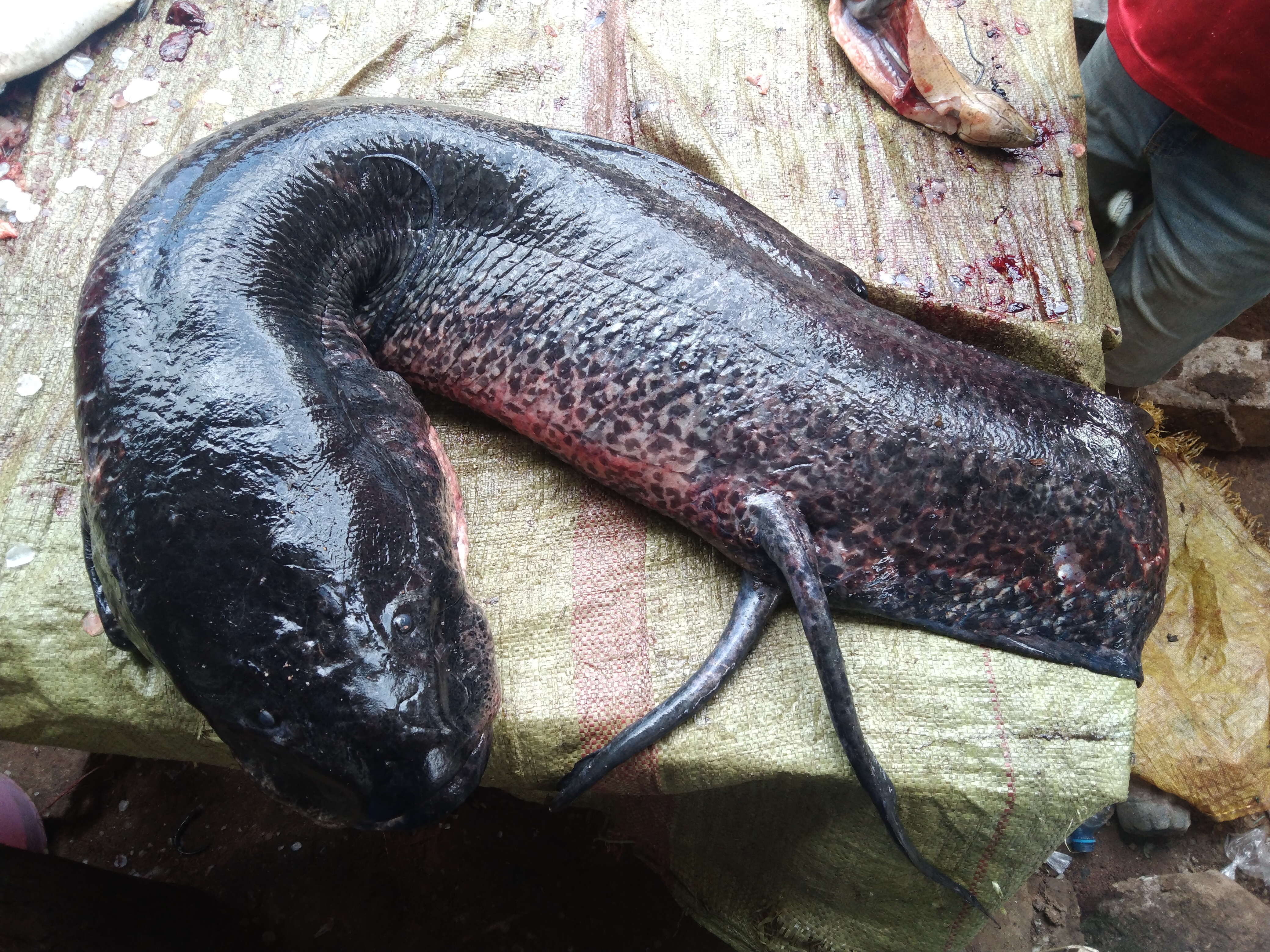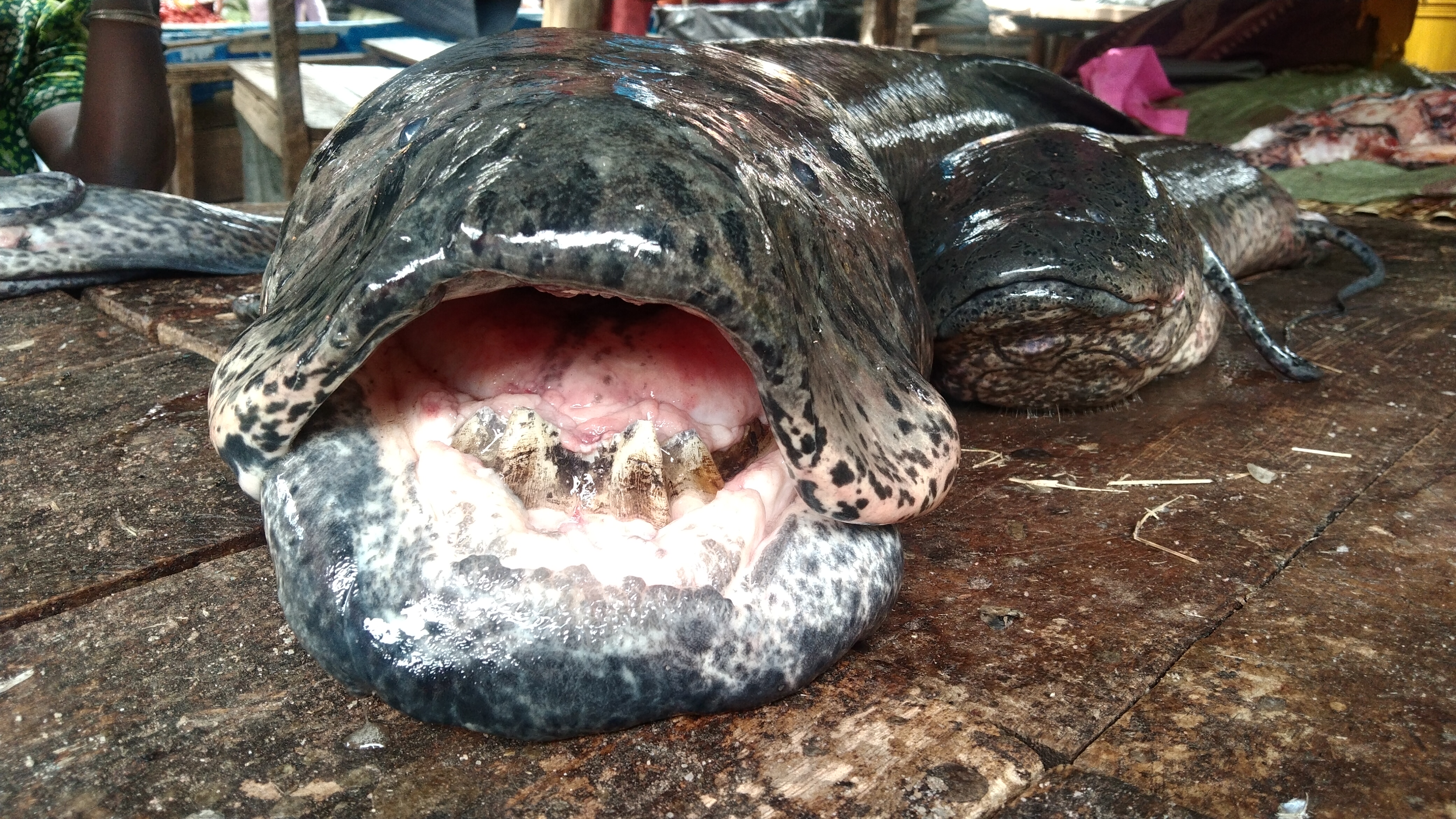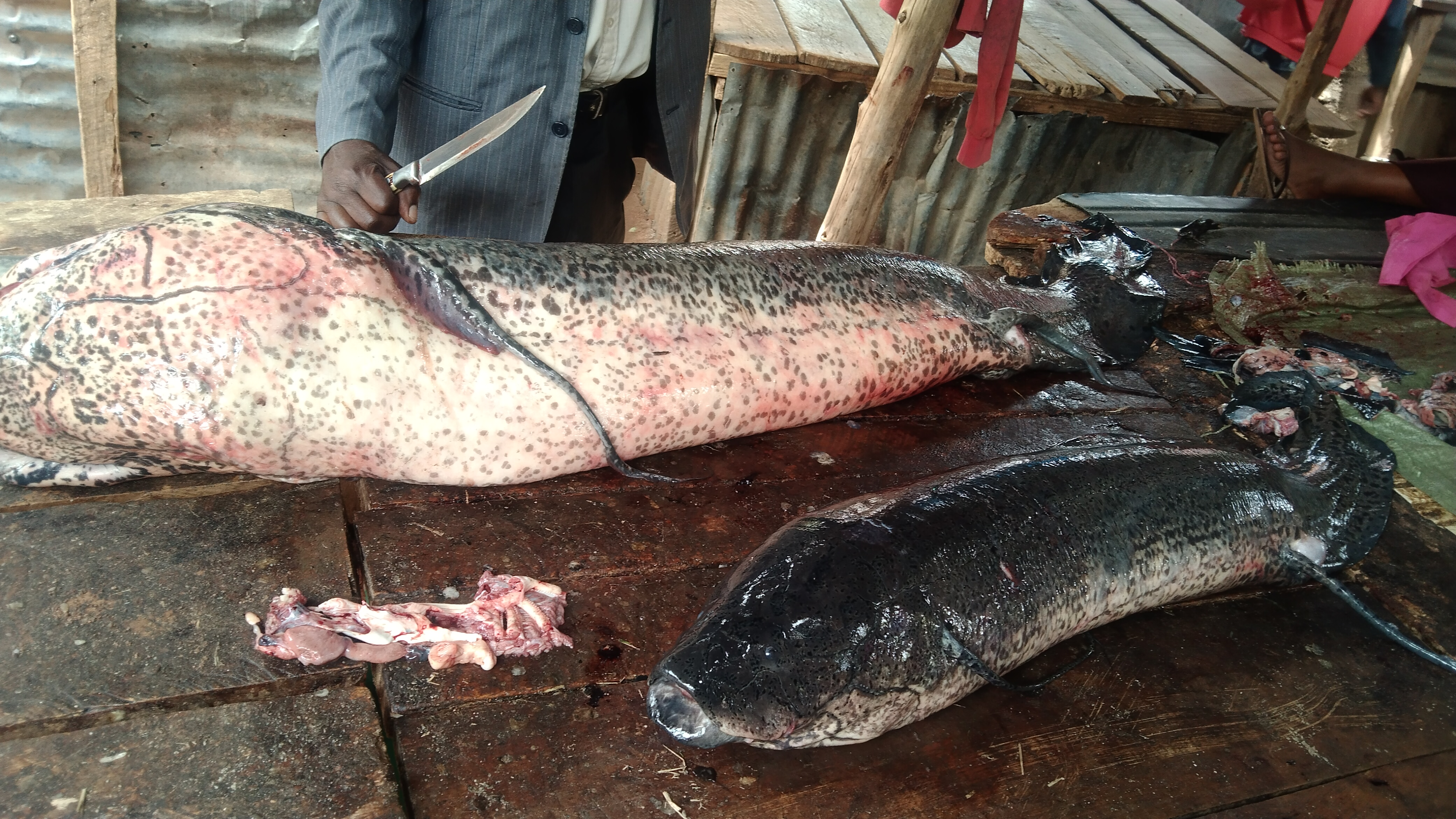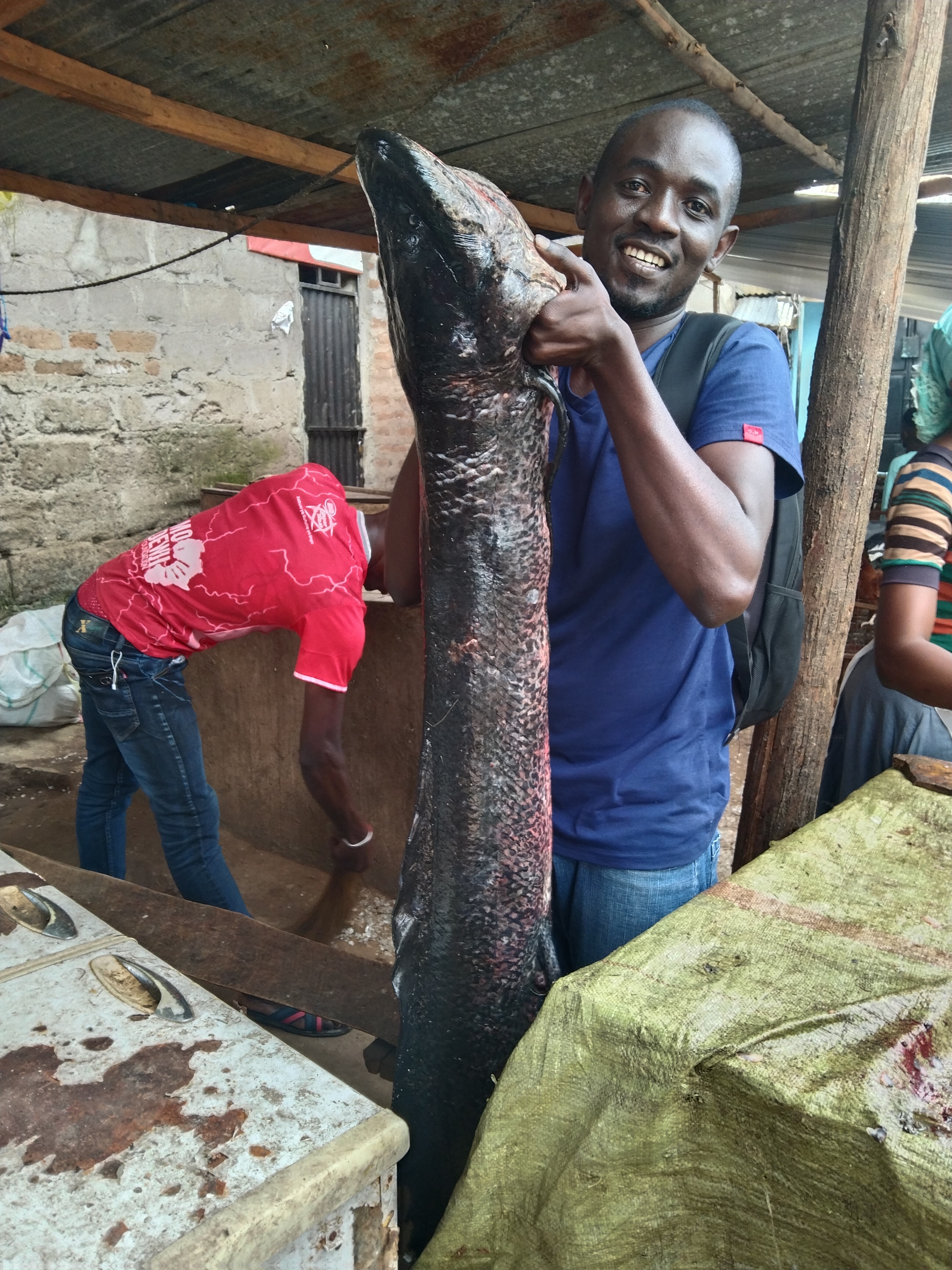
The fascinating story of African Lungfish- "The living fossils".
African lungfish in Swahili language is known as kamongo, scientific name protopterus annectens. This magical fish live in freshwater swamps, inland wetlands, backwaters and small rivers in West, East and South Africa. The fish is largely found in Lake Victoria basin. These prehistoric animals have survived unchanged for nearly 400 million years and are sometimes scientists referred to as "living fossils."
Life of an African lungfish
African lungfish have some fascinating adaptations. They have two lungs, and can breathe air. This is a vital feature, since they live sometime in flood plains in waterways that often dry up. To manage this life-threatening situation, the lungfish secretes a thin layer of mucus around itself that dries into a cocoon. It can live out of water in this cocoon for up to a year, breathing through its lungs until rains refill its waterway. The African lungfish also hibernates in water. It digs 1-9 inches into the soil and debris at the bottom of its waterway, then wiggles in the mud to create a bulb-shaped chamber and rests there with its nose pointing upward. Its metabolic rate slows down, and the nutrients it needs to survive come from breakdown of its muscle tissue. It can remain up to 4 years in this state. African lungfish are omnivorous, eating a varied diet that includes frogs, live and dead fishes, earth worms and mollusks as well as tree roots and seeds. They grow between 6 and 50 inches long, and can weigh up to nearly 30kg (66 pounds). The female African lungfish lays its eggs in a nest in a weedy area of its habitat. Once the eggs hatch, the males guard the young for up to two months. The larvae have external gills that are reabsorbed during their metamorphosis into fully developed lungfish. As the African lungfish develops from juvenile to adult, its teeth fuse together to form tooth plates, which are used to chew its food.

Developed teeth of African Lungfish for chewing food
Economic Value
African Lungfish is a source of income through trade to most communities in Africa and women play a major role in harvesting, processing and marketing. Mostly this fish is traded as fresh sliced pieces, smoked, and deep fried. Price varies according to geographic location, is higher in towns or cities and lower in rural areas. 1kg in rural area is sold between USD 1 to 3 while in cities it ranges from USD 2 to 4. (Estimated for fresh African lungfish not processed one). According to Fisheries Ministry, Annual fisheries Statistical Report for 2020, Tanzania produced 2768.94 metric tons of lungfish which worth USD 6.0M from Lake Victoria.

Deep fried African Lungfish in local market

African Lungfish in local market
Ecological Importance in Lake Victoria
African Lungfish play vital roles in ecological system to human. As this fish is malacophagous and can consume up to 200 snails per day, thus used as biocontrol agent against schistosoma vector snails. Schistosomiasis is an acute and chronic parasite disease. This disease is common in Lake Victoria communities and it is transmitted by freshwater snails.
Social Believes on African Lungfish
There are contra visual issues regarding African Lungfish. Some area in the basin this fish is highly appreciated and preferred as food. In Kenya and northern part of Tanzania where Luo triable found they tend to value this fish than beef. They have common saying “kamongo yashinda nyama” meaning Lungfish is so test than beef. But some community in the region they don’t like this fish due its appearance. Some area in the basin they use this fish as traditional medicine healing. It used to cure lactation problems, treatment for alcoholism addiction, kwashiorkor (severe malnutrition). It’s tail it used to enhance male’s sexual performance.
Fishing of African Lungfish
Fishing African Lungfish has been practiced for long time, but it need specialized fishermen. Long lines are the main fishing gears employed, and those are placed along the lakeshore, close to the vegetation zone mostly in papyrus swamps. For the long line, hooks are baited with piece of tilapia, frogs, birds, meats, rats or haplochromines.
 African Lungfish fishers in papyrus swamp in kibuyi bay - Lake Victoria Tanzania
African Lungfish fishers in papyrus swamp in kibuyi bay - Lake Victoria Tanzania
 Mr. Massaho, Blue Victoria ED holding African Lungfish weighted 25kg
Mr. Massaho, Blue Victoria ED holding African Lungfish weighted 25kg




